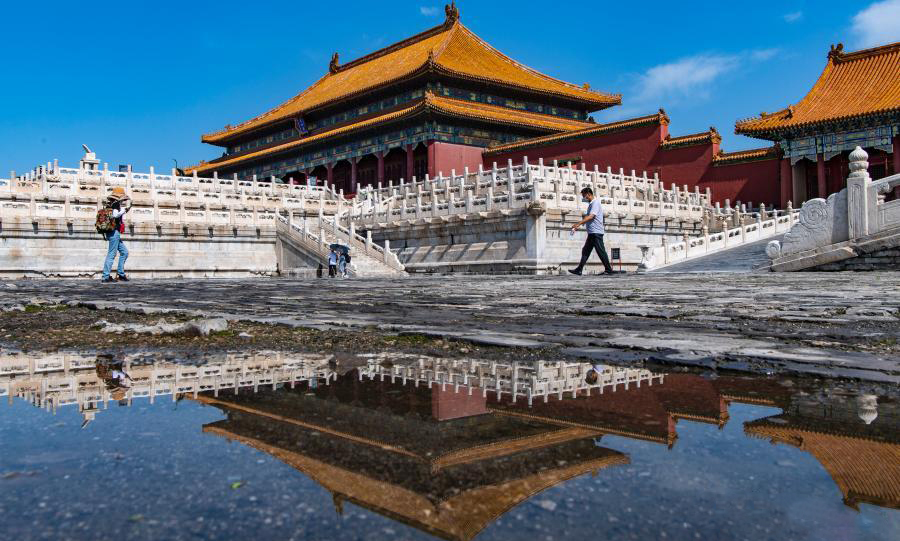China, EU agree to jointly tackle global economic challenges

Chinese Vice Premier Liu He, also a member of the Political Bureau of the Communist Party of China Central Committee, and Valdis Dombrovskis, executive vice president of the European Commission, co-chair the 9th China-EU High-Level Economic and Trade Dialogue held via video link on July 19, 2022. (Xinhua/Yin Bogu)
BEIJING, July 19 (Xinhua) -- During their 9th High-Level Economic and Trade Dialogue on Tuesday, China and the European Union (EU) agreed to make joint efforts to promote practical cooperation in the field of economy and trade, and to jointly cope with the challenges facing the global economy.
The dialogue, which was held via video link, was co-chaired by Chinese Vice Premier Liu He and Valdis Dombrovskis, executive vice president of the European Commission.
The two sides had pragmatic, frank and efficient discussions on four topics, namely the macro economy, industrial chain and supply chain, trade and investment, and financial cooperation.
The two sides reached a series of outcomes and consensuses on macroeconomic policy coordination, cooperation on industrial and supply chains, WTO reform, wider market opening, implementation of the China-EU agreement on geographical indications, animal and plant inspection and quarantine, two-way opening-up of the financial sector and regulatory cooperation.
Both sides believe that the world political and economic situation is undergoing profound changes, and healthy and stable China-EU relations and China-EU economic and trade relations are conducive to global development and prosperity.
The two sides are willing to make joint efforts to enhance mutual understanding, promote pragmatic cooperation between China and Europe in economic and trade field, and enhance the stability of China-EU cooperation to better cope with the uncertainty of the global economic situation.
The two sides are ready to jointly address the challenges facing the global economy, strengthen communication and coordination of macroeconomic policies, maintain the stability of the global industrial chain and supply chain, and jointly safeguard and strengthen the rules-based multilateral trading system with the WTO at its core.
They also agreed to actively improve trade and investment liberalization and facilitation, promote fair competition, protect intellectual property rights, create a better business environment for enterprises, and further advance two-way opening-up and regulatory cooperation in the financial sector.
Photos
Related Stories
Copyright © 2022 People's Daily Online. All Rights Reserved.









